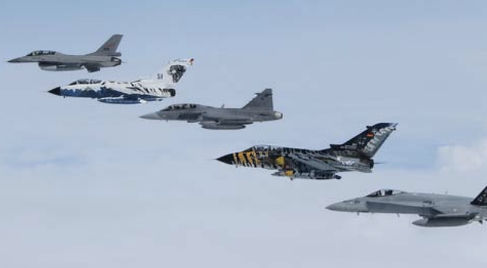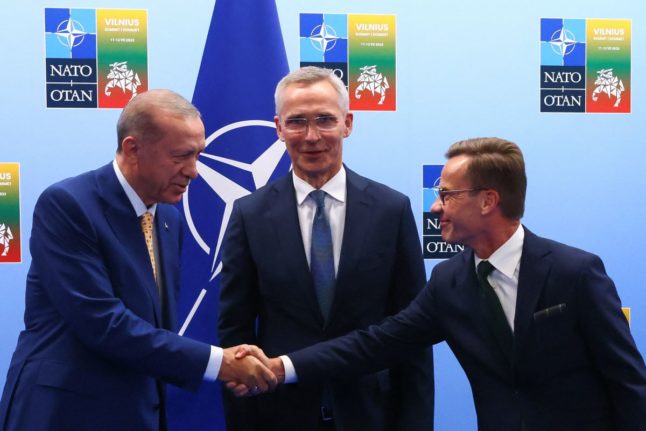RUSSIA
Norway hones armed forces for Russia threat
Norway is restructuring its armed forces to respond faster to possible Russian aggression, the country’s defence minister told the Guardian on a visit to London on Wednesday.
Published: 25 February 2015 22:11 CET

Fighter jets from various Nato countries fly in Northern Norway during an informal meet of the Nato Tigers in 2012. Photo: Nato Tigers
“Because of the new strategic situation and the new security policy situation, we need to be prepared to have not long warning times if something were to happen,” Ine Eriksen Soreide told the newspaper. “So we will need to twist and turn our armed forces… compared to how they have been in recent years.”
She said that Russia had recently reopened military bases close to Norway’s northern borders which had been shut down since the cold war, and that there had been a marked increase in flights by Russian military aircraft on the fringes of Norwegian airspace.
“We have seen in the first couple of months of this year a certain increase compared to the same period last year and … an increased complexity. We see they fly longer, they fly with more different kinds of airplanes and their patterns are different than they used to be,” she said.
Norway scrambled its F-16 jets at Bodo airforce base on the north-western coast no fewer than 49 times in 2014 in response to Russian warplanes flying close to Norwegian airspace, she told the Guardian.
Among the 74 different Russian planes identified, a growing number were heavy bombers, such as the Tu-95 ‘Bear’, the Tu-160 ‘Blackjack, and the Tu-22 ‘Backfire’.
Norway now intends to keep a constant military presence in its far north, she said.
“Right now and today, we have to make sure we can keep our situational awareness, and … to keep up our presence in the high north, both with frigates and planes. Because one of the most important things we can do right now is to make sure we have eyes on what is happening.”
Url copied to clipboard!


 Please whitelist us to continue reading.
Please whitelist us to continue reading.